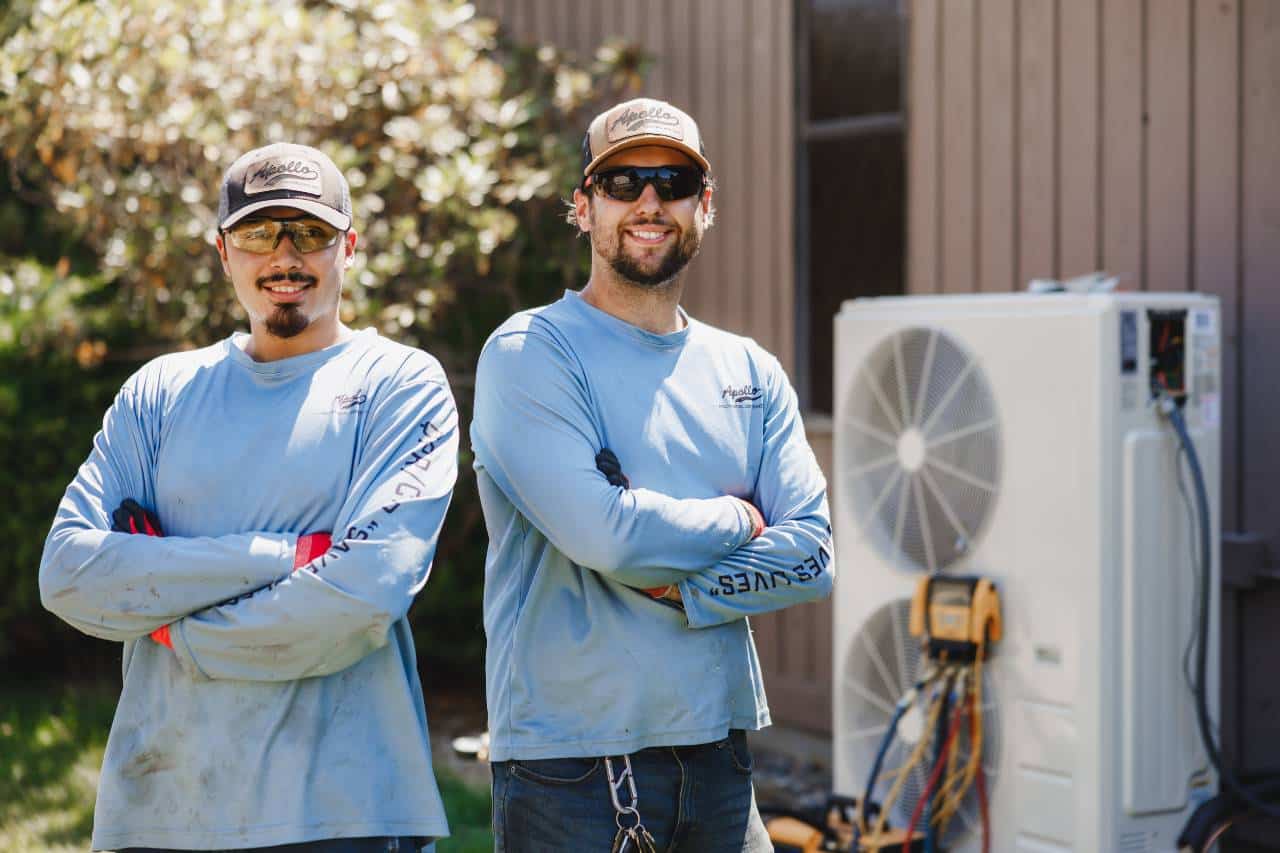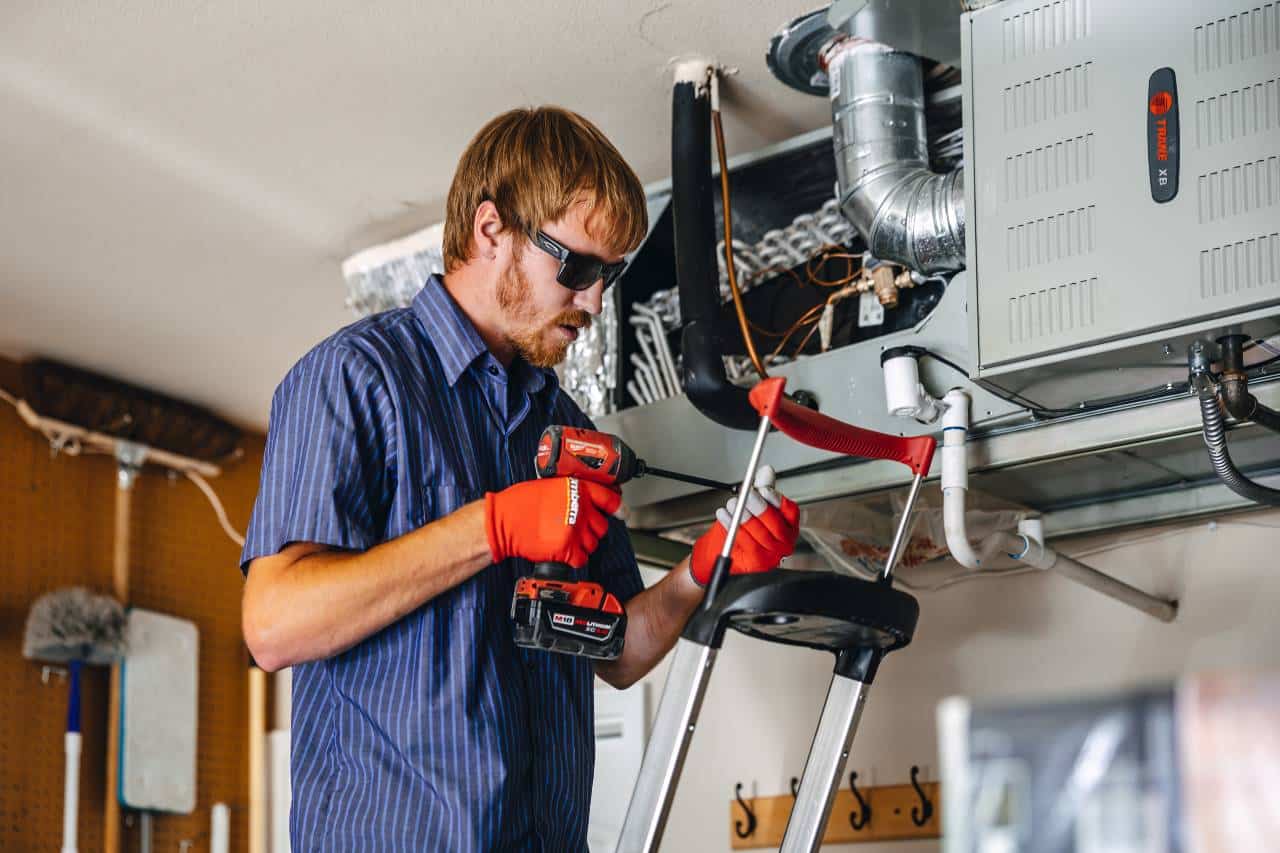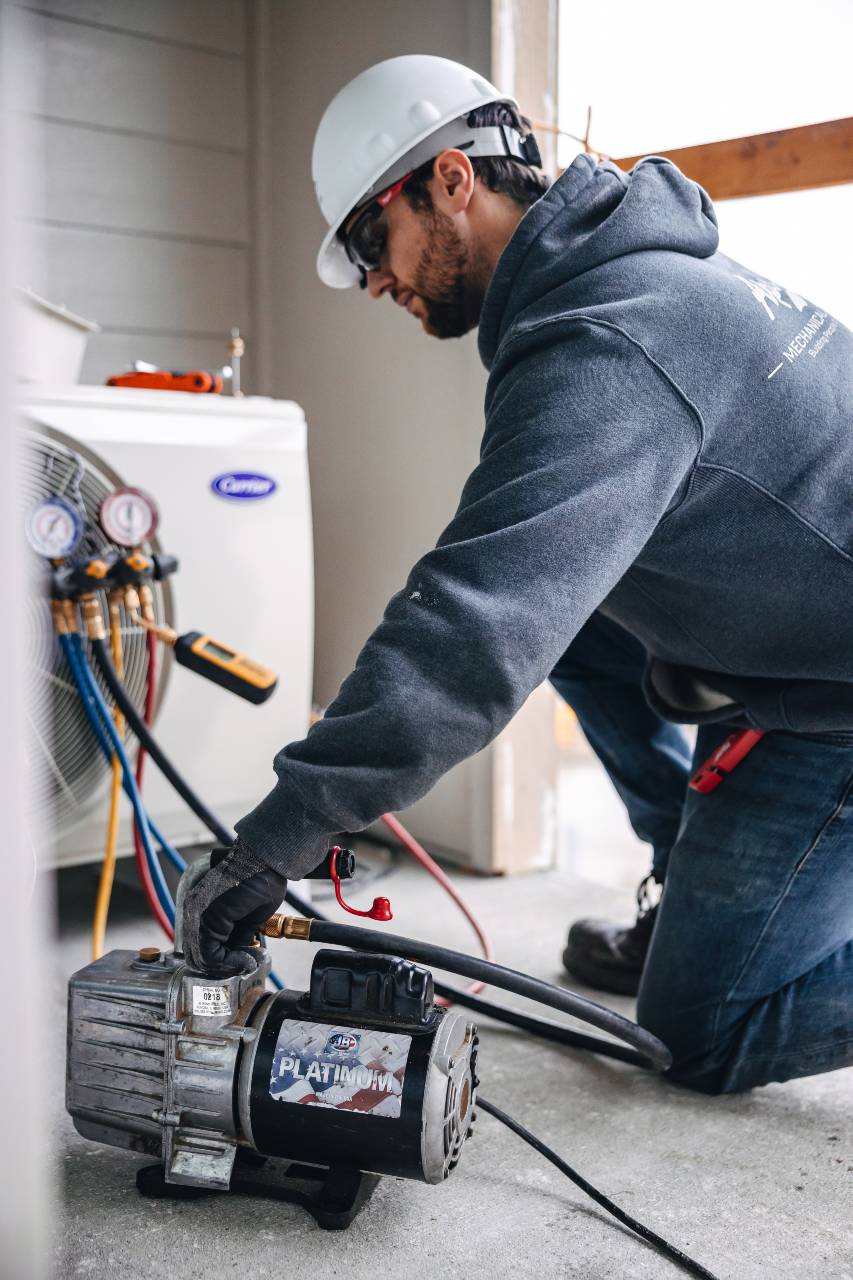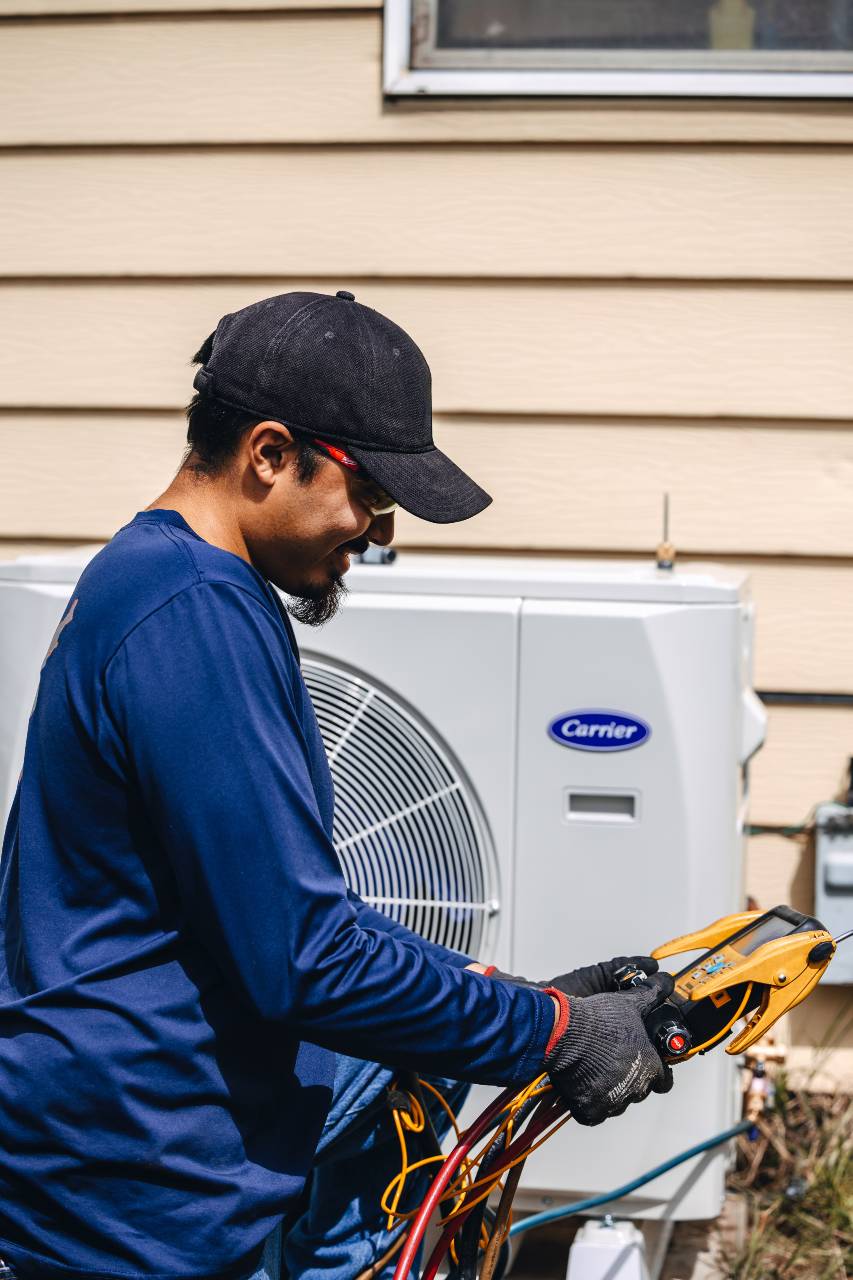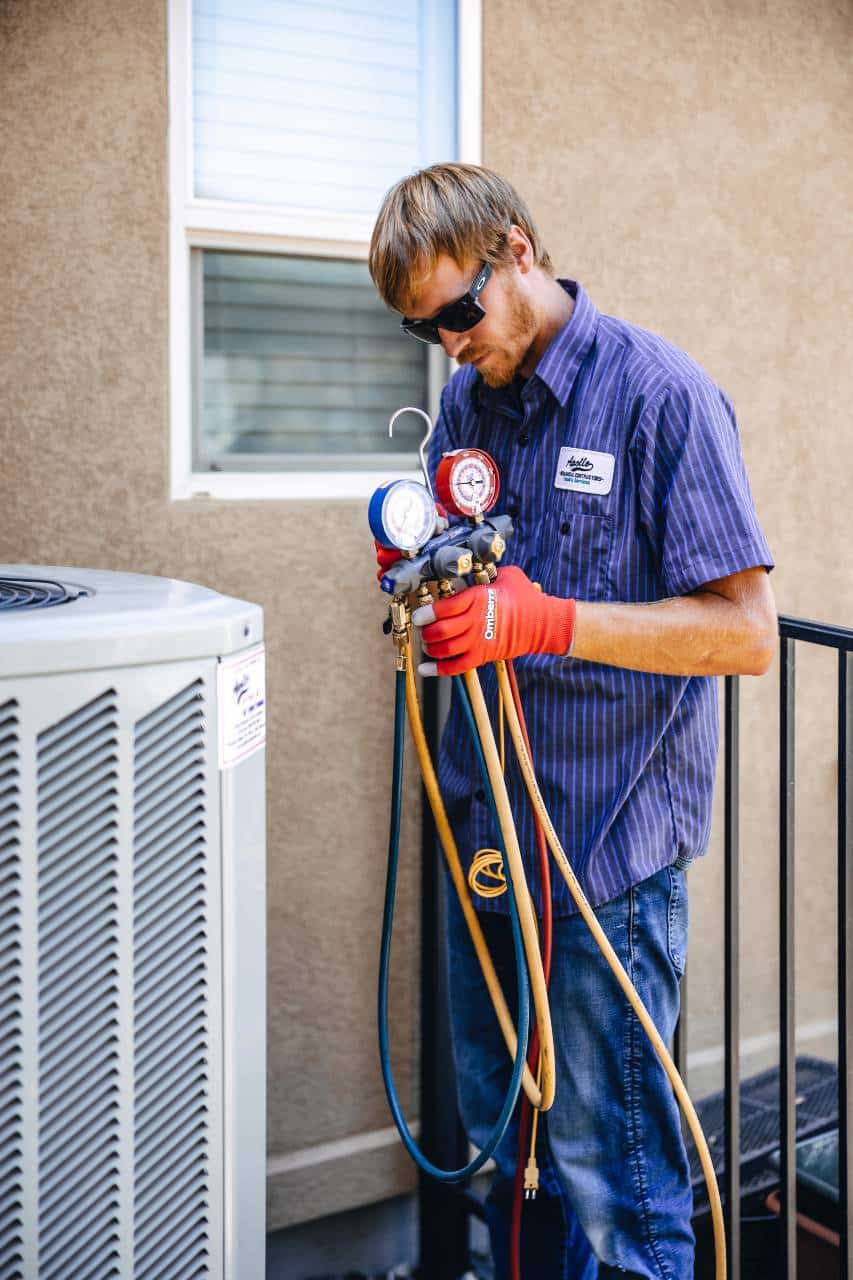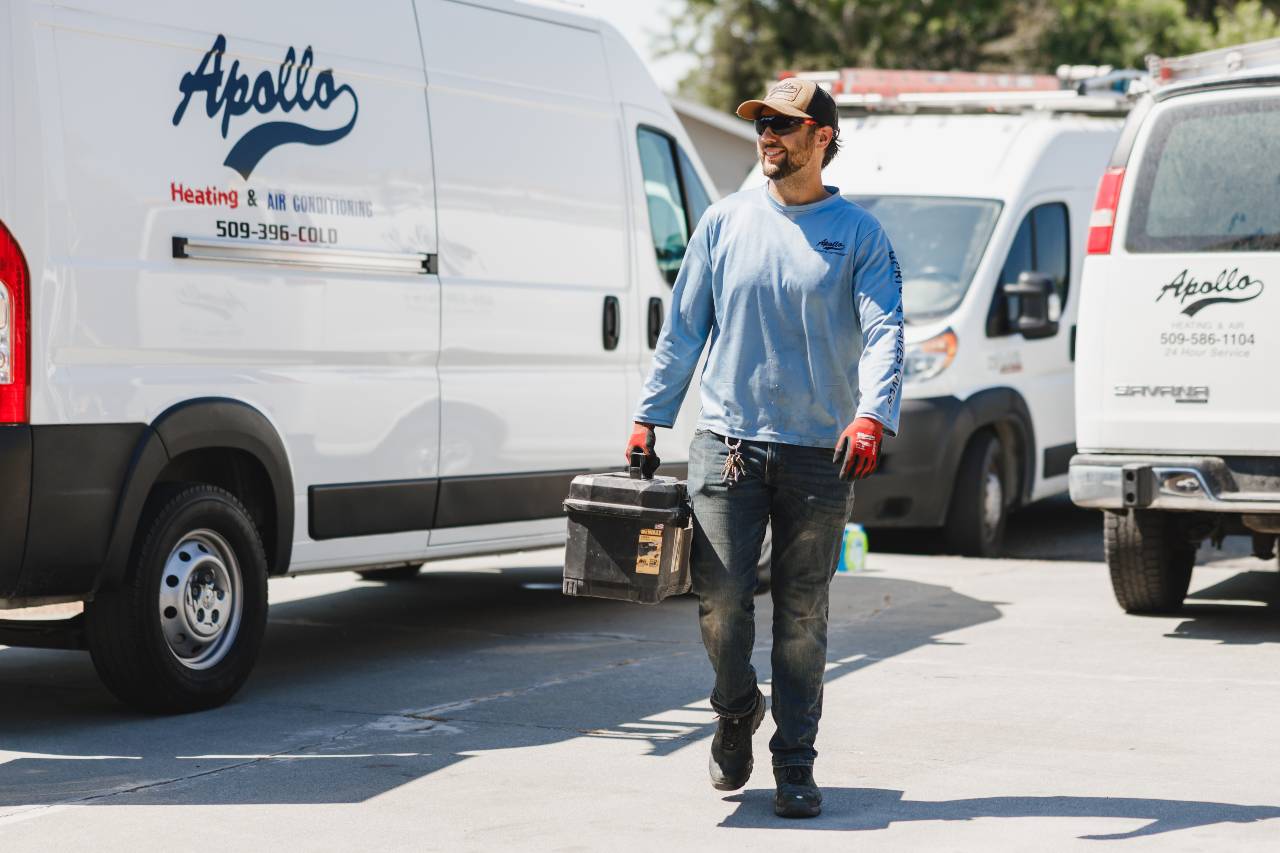If you are a resident of the Tri-Cities, you know that our weather hits every extreme. With the first frost starting in mid-October and the last averaging to the end of April, we suffer long, cold winters that transform into blazing hot summers. Over the year, our temperatures swing from 27°F to 93°F, but can even go from below 13°F to above 102°F. On top of that, you know we face high winds, ice storms, flooding, hail, snow, and the most glorious thunderstorms. All this is to say that due to our extreme weather, we must be ever diligent with our HVAC maintenance, as maintaining a reliable HVAC system is essential to achieving year-round comfort in our homes.
Join us as we walk you through our detailed guide on how to protect your HVAC system in Tri-Cities, WA, from extreme weather conditions, including preventive measures, maintenance tips, and the importance of professional services.
The Impact of Weather Extremes on HVAC Systems
Just like how a roof can be impacted when it gets pummeled by hail, your HVAC system can be affected by extreme weather. However, unlike the apparent damage you can see when a roof gets blemished, it isn’t nearly as visible with your HVAC system.
For example, the most common impact of extreme weather on an HVAC system is it getting overworked. When the temperature is high, the system has to work overtime to keep your home cool. Similarly, when it is freezing, it overworks to keep the house warm.
Other extremes can also force your system to work harder; high humidity forces the system to filter out excess moisture, and high winds require the system to push air through the ducts. Overall, when your system has to work harder, it strains all of its parts, increasing energy consumption and decreasing the unit’s lifespan.
Beyond overworking your HVAC system, extreme weather conditions can induce additional negative impacts on your system. For example, pipes can freeze when the temperature drops too low, excess water can lead to system flooding, and power surges can cause electrical damage. While there is no way to stop the weather here in the Tri-Cities, there are steps you can take as a homeowner to improve your HVAC system performance and longevity.
Preventive HVAC Maintenance for Every Homeowner
1. Performing Common Maintenance 
As a homeowner, there are a few easy steps you can take to preventively protect your HVAC system, including:
- Keeping your thermostat at a reasonable temperature
- Utilizing curtains and weather blockers
- Replacing your furnace filters on schedule
- Removing debris from outside unit
- Preventing vents and internal systems from being blocked by items
- Vacuuming regularly to clear excess dust, pollen, and hair from the home
2. Scheduling Bi-Annual Inspections
Even the most savvy DIY homeowner should leave the majority of HVAC maintenance to the professionals as it is a hazardous job with complex parts. Due to this, we recommend scheduling bi-annual inspections and maintenance for your HVAC system. For example, at Apollo Heating and Air Conditioning, our heating and cooling inspections include the following:
- Inspecting and tightening electrical connections and wiring
- Checking heating and cooling operation
- Checking Freon levels
- Inspecting mechanical connections
- Checking thermostat operation
- Inspecting bearings condition
- Inspecting and cleaning indoor coils
- Oiling motors
Overall, by having a professional HVAC specialist come in during the spring and fall, you can guarantee that your system is in top condition to handle the next extreme season.
3. Preparing for Extreme Weather
The third action you can take is to perform seasonal HVAC maintenance and extreme weather preparation. Of course, these tasks will differ based on the seasonal challenges, so let’s explore further.
Preparing Your HVAC System for Summer Heat
Tri-Cities summers can get toasty, getting up into the 80s and 90s during the day from June to the start of September. Due to this, HVAC systems often see heavy strain as they work to keep houses at a comfortable temperature. Therefore, the best thing you can do for your HVAC system is to decrease the workload as much as possible. Here is what we suggest you do:
1. Prepare Your System
Making sure your HVAC system is fully prepared for the summer heat is an essential HVAC maintenance chore. We recommend requesting an HVAC inspection to ensure the coolant sits at the appropriate levels and to have the condenser coils cleaned.
2. Ensure Proper Ventilation
Next, you want to ensure that your HVAC unit is cleared of any debris and that nothing is blocking the airflow. We recommend double-checking the external system to ensure it is free and clear; this may include clearing out leaves from the base of the condenser, cleaning the drain, and wiping down blades.
3. Adjust Thermostat Settings
Adjusting your thermostat settings is an easy action to take before the summer heat sets in. If you don’t already have a programmable thermostat, we highly suggest you get one, as the following is most helpful.
To program your thermostat to benefit your HVAC system the most in the summer, we recommend setting it higher during the day (when you are away at work) and to a more comfortable level when you are home. The typical recommendation is to stay in the high 70s while you are away or inactive and cooler while you are sleeping.
The benefits of using a programmable thermostat are that you can set it and forget it. You don’t have to worry about turning the thermostat up or down during busy mornings but know that it will automatically adjust to your preferences.
4. Utilize Alternative Cooling
Lastly, we recommend taking as much strain off your HVAC system as possible by utilizing alternative cooling methods. Here are a few ideas to get you started:
- Use Blackout Curtains or Blinds: To reduce indoor temperatures, block out direct sunlight during the hottest parts of the day.
- Install or Replace Weather Stripping: Seal gaps around doors and windows to prevent warm air from entering and cool air from escaping.
- Utilize Ceiling Fans: Ceiling fans create a wind-chill effect, making you feel cooler without lowering the room temperature.
- Use a Dehumidifier: Lower humidity levels to make your home feel cooler, even without lowering the temperature.
- Create Cross Ventilation: Tri-Cities mornings and evenings are typically much cooler. You can open windows strategically to allow cross breezes to cool your home naturally.
Suppose you really want to get into naturally cooling your home. In that case, you can also plant shade trees (or install awnings) to block sunlight from hitting your home, install attic ventilation to dispel hot air, switch to LED light bulbs, and avoid creating excess heat in your home during the day, such as running the oven!
Winterizing Your HVAC Against Extreme Cold
After escaping the heat of the summer, the Tri-Cities doesn’t have much of a break before the temperature starts to dip dramatically. During the fall, daily high temperatures decrease by 42°F, from 86°F to 44°F, and daily low temperatures decrease by 22°F, from 53°F to 31°F. With that also comes snow! So, what can you do to winterize your HVAC system? We recommend the following
1. Prepare Your System
As we did in spring, preparing your system for fall is best done with a professional inspection. Your HVAC specialist will check your heat exchanger, fittings, components, and connections to ensure you are safe to turn on the heat once it gets chilly.
2. Clear Debris or Items
Similarly to spring, you will want to clear any debris or items away from your furnace. This means ensuring all vents and your furnace door aren’t blocked by any furniture or décor.
3. Utilize a Cover
During the winter, your outside air-conditioning unit won’t be in use, making it a clever hiding spot for pests. Covering your outside unit can prevent critters from making it their home while also protecting it from harsh winter weather.
4. Adjust Thermostat Settings
When adjusting your thermostat for the winter, you will do the exact opposite as you did for summer. The Environmental Protection Agency (EPA) recommends you set the thermostat to 68°F to 70°F while you’re awake and then set it even lower while you are asleep or away from home.
5. Utilize Alternative Heating
Just like natural cooling methods, there are ways to stay warm without placing such a harsh strain on your HVAC system. Here are a few ideas to get you started:
- Bundle Up: Wear layers of warm clothing or use extra blankets to keep your body heat in.
- Use Insulated Curtains: Hang insulated or thermal curtains to keep the cold air out and the warmth in. Then, open them during the day to naturally warm your home and close them at night to keep the heat in.
- Put Down Area Rugs: Lay down thick area rugs or carpets to insulate floors and keep your feet warmer, reducing the chill from cold floors.
- Seal Drafts with Weather Stripping: Apply weather stripping around doors and windows to prevent cold drafts from entering your home.
- Close Off Unused Rooms: Shut the doors to rooms you don’t use regularly to concentrate heat in the areas where you spend the most time.
- Place Draft Stoppers at Doorways: Use draft stoppers at the bottom of doors to block cold air from seeping in from the outside or colder rooms.
- Use a Humidifier: Using a humidifier can make your home feel cozier without needing to crank up the heat.
- Reverse Ceiling Fan Direction: Set your ceiling fan to spin clockwise on a low setting to push warm air that rises back down into the room.
Suppose you really want to invest in naturally heating your home. In that case, you can add extra insulation to your attics, walls, and crawl spaces, cover your windows with plastic film, install a fireplace, or focus your heat-creating activities (like cooking) on cold evenings.
When to Call for Emergency HVAC Services
It certainly isn’t at the top of anyone’s preferred to-do list to call for HVAC service in the middle of the night or on a holiday. However, it sometimes cannot be helped. If you are unsure of whether to call or not, we encourage you to read our comprehensive blog on Who Should I Call for Emergency HVAC Service in the Tri-Cities to learn what qualifies as an HVAC emergency.
What to Do in Case of an HVAC Breakdown During Extreme Weather
When it comes to homeownership, it always feels like bad things happen at the most inconvenient moments – such as your HVAC system breaking down during extreme weather.
To prevent having an HVAC emergency, we recommend the following:
- Learn the Warning Signs: Understand common warning signs of HVAC failure and what to do even when they happen.
- Get Regular Inspections: Stay on top of your HVAC maintenance to ensure your system is running correctly and to give yourself a heads up on any potential problems.
- Prepare for Extreme Weather: Prepare your HVAC system for the worst Mother Nature has to offer with the above-mentioned tips.
- Know Who to Call: Have an HVAC emergency company on hand in case of an issue. To do this, vet them in advance and have an idea of pricing.
- Prepare an HVAC Emergency Kit: If your HVAC system fails, have emergency supplies available to keep your family safe and comfortable until you can get it fixed.
However, if you have assessed that you are in the middle of an HVAC emergency, don’t wait to take action. Turn off your system, call for emergency HVAC services, and prepare your house and family to be safe and comfortable while you wait.
Apollo Heating and Air Conditioning – Your Tri-Cities Premier Service
As a local Tri-Cities HVAC maintenance and installation company, we at Apollo Heating and Air Conditioning understand that our weather is none too kind to our home systems. To ensure you always have a comfortable home, we are here to help! Don’t let extreme weather take a toll on your HVAC system. Call Apollo Heating & Air Conditioning now for professional services that keep your home comfortable all year round.

